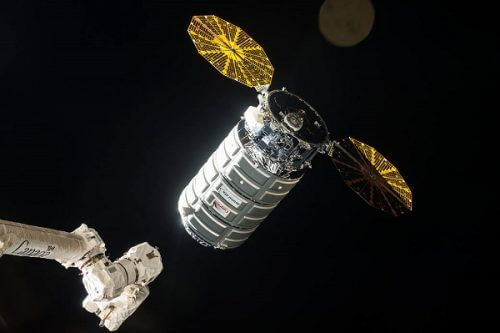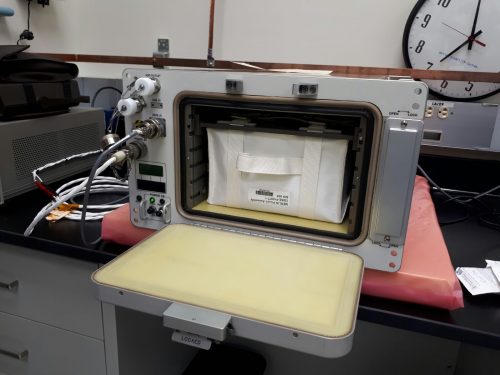A tiny space laboratory developed with the support of the Israel Space Agency and containing 4 live experiments that have not been tried in space until now, arrived at the International Space Station yesterday aboard a Cygnus-type supply spacecraft, and today the experiments will begin under control from Earth

An innovative laboratory of the Israeli company Space-Pharma containing 4 experiments in the field of life sciences arrived on Tuesday, November 14, at the International Space Station after a successful launch aboard the Cygnus spacecraft on Sunday.
The laboratory, whose development was supported by the Israel Space Agency, is unique in that it is conducted without human contact and is controlled directly by the researchers from Earth. In the laboratory, two experiments by American researchers, an experiment by a Swiss researcher and another experiment by an Israeli pharmaceutical company. The experiments on living biological cells in the space laboratory are considered innovative and have not yet taken place in space. The first experiment is expected to begin today.
According to the Minister of Science and Technology Ofir Akunis: "We are proud to see how Israeli entrepreneurs in a new and developing field of space startups that we are promoting, succeed in a short time to break boundaries and register achievements in space. This is further proof that Israel is a powerhouse of innovation and a pioneer in every field."
Spacepharma's "Nexus" laboratory, which was launched to the space station last Sunday along with a 3-ton supply load for the astronauts on the station, does contain four experiments, but its size is tiny - 20 x 10 x 10 cm and weighs only 2.3 kilos - which reduces launch costs. The laboratory includes a microscope-camera that photographs samples according to the researchers' request. The laboratory is unique in its technological ability to maintain a temperature similar to the human body, 37 degrees, and an electrical balance.

The development of Space-Pharma is also unique in that it allows the researchers to control the experiments from anywhere on the planet - on a website through the computer or an application on the cell phone. The researchers will be able to intervene in the experiment, manage it, retrieve microscopic images, receive real-time data on radiation, temperature, and more, independently of the astronaut. The space provides an optimal experimental environment for testing the effect of subgravity conditions on chemical and biological substances, for example for the purpose of testing drug resistance.
According to the company's founder Yossi Yamin: "Meeting NASA's strict launch conditions is a significant benchmark for a company for which this is the second launch into space in 9 months. The activity against the Americans was demanding and it goes without saying that the system was trained in the cargo spacecraft."
The laboratory will probably be received at the space station by the Italian astronaut Paolo Nespoli, who also visited the space week in Israel about four years ago, who will connect it to the station's electricity. From that moment the laboratory will be operated under direct control from Earth and without the need for human contact. The experiments will be completed within three weeks and for the first time the laboratory will be returned to Earth within a few months of the end of the experiment in order to carry out analyzes by the researchers, for the purpose of advancing the research.
The launch of the Cygnus spacecraft, with the Israeli laboratory on board, towards the International Space Station on Sunday, aboard an Antares launcher
One of the experiments that will be carried out in the space laboratory is that of Dr. Sarah Walsh, whose research deals with a bacterium that causes infections mainly among people whose immune systems are weak. Her experiment examines the effect of microgravity conditions on a molecule that causes the bacteria to change. The experiment may lead to the discovery of a cure for the bacterium and new methods of treatment.
This is the second launch for Space-Pharma, the first tiny laboratory satellite it developed, "Dido", with four experiments Launched in February The last one into space and has been operating successfully ever since.
